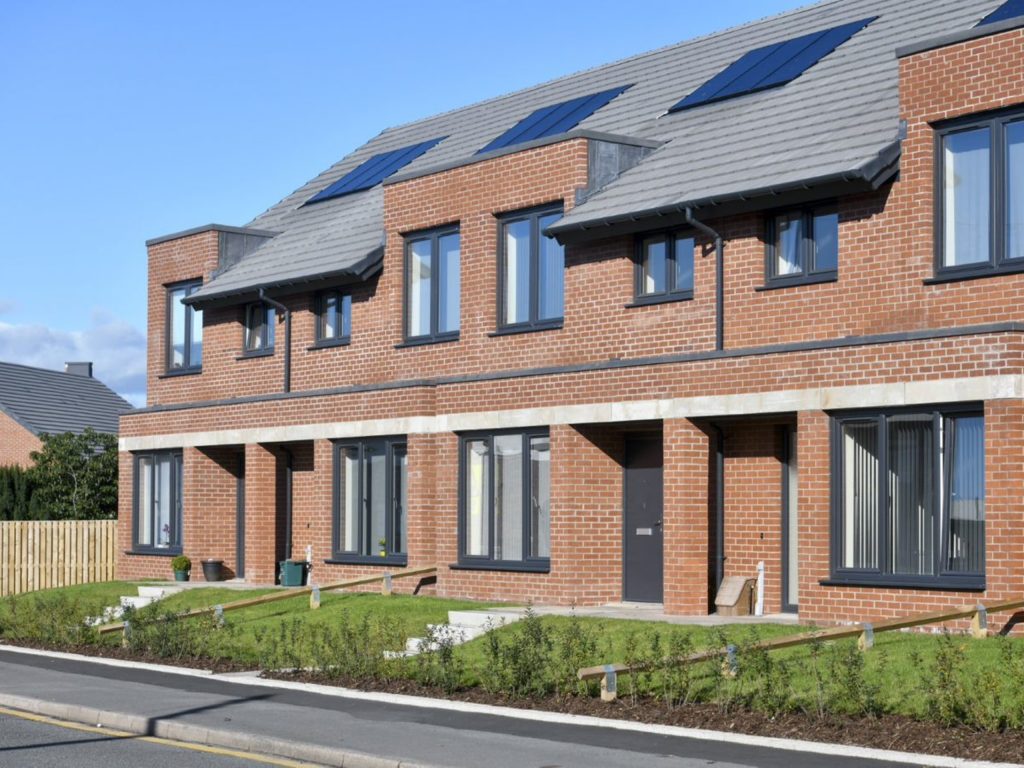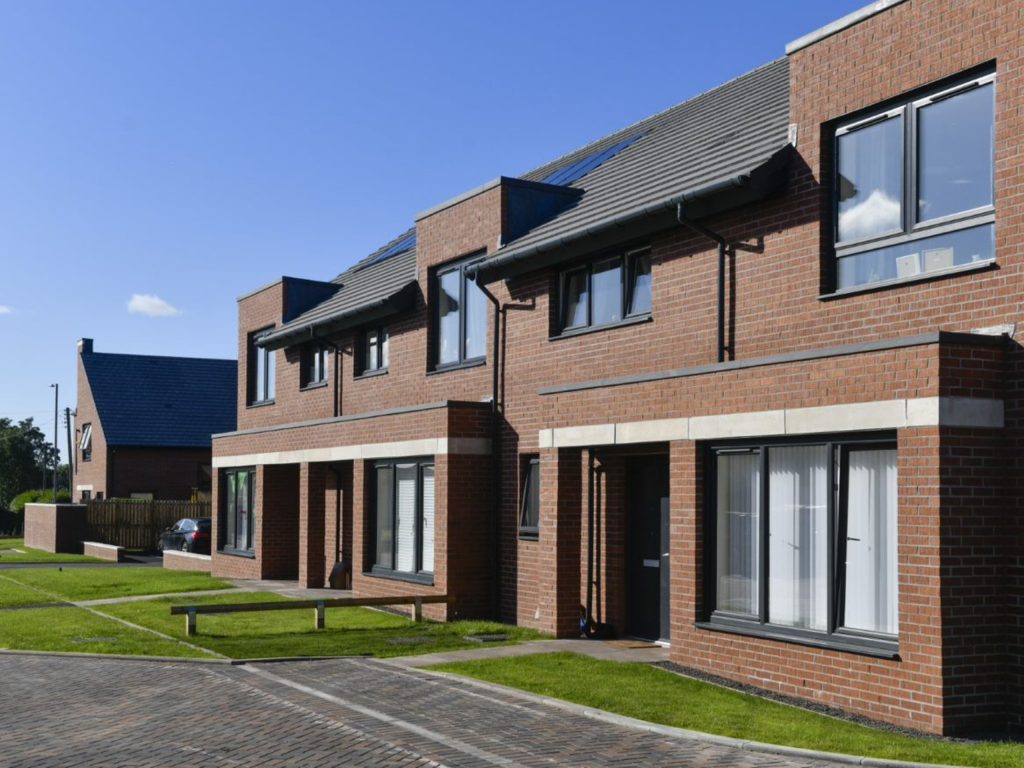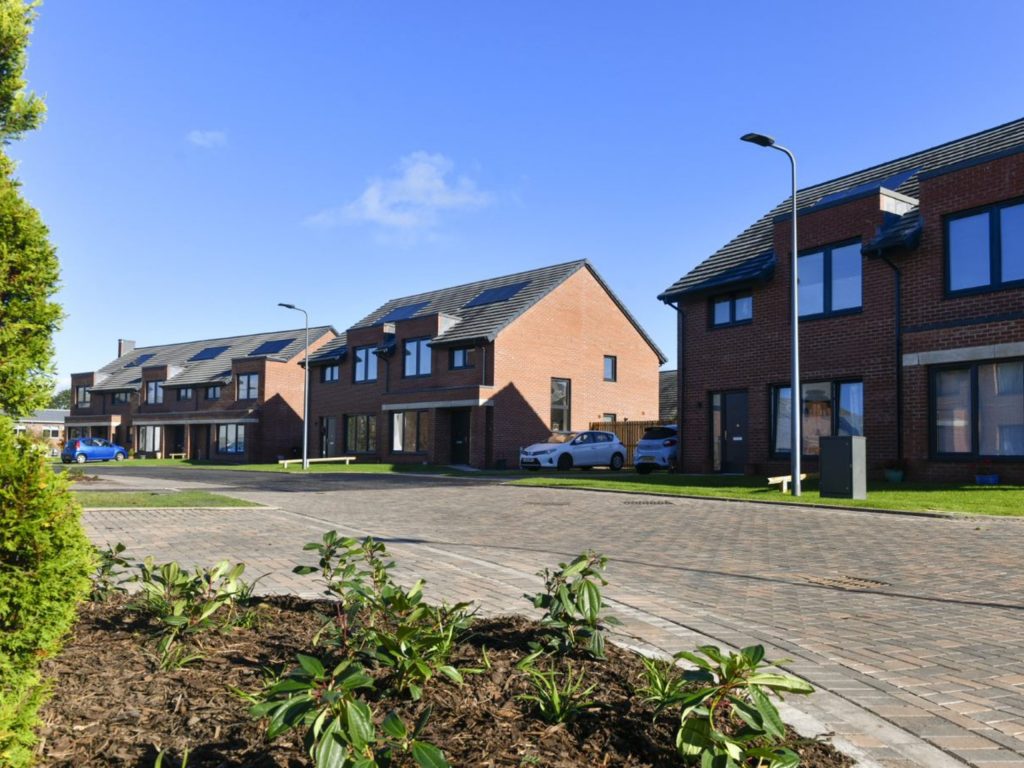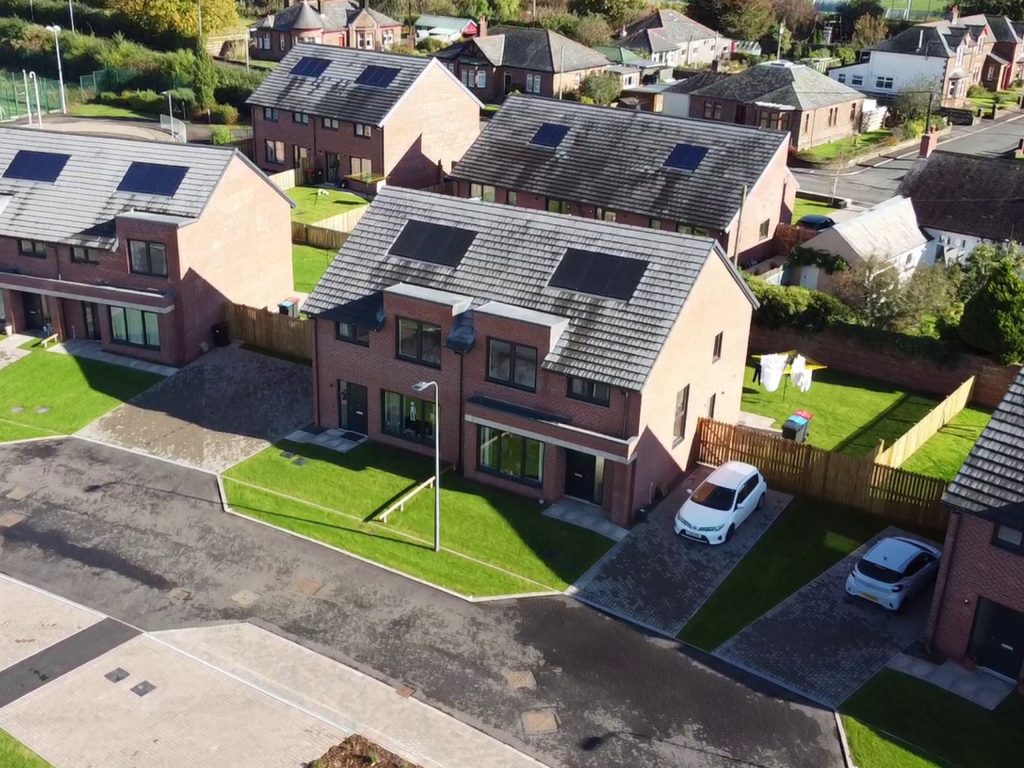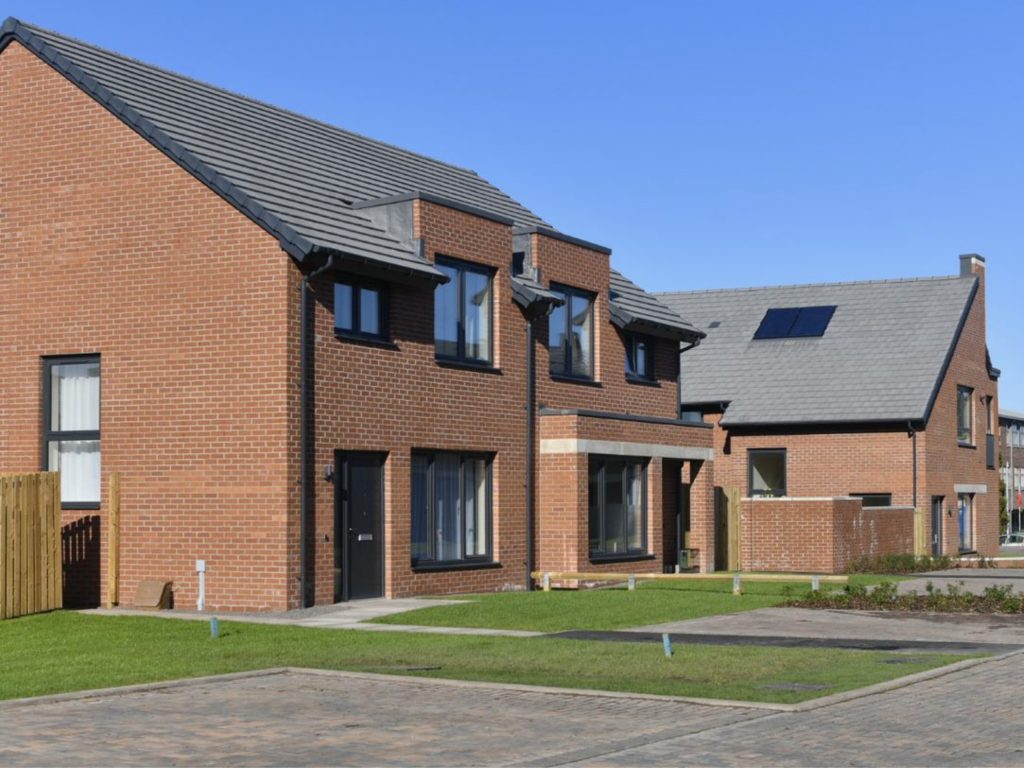The housing association has shortlisted as finalists in two categories at the Herald property awards for Scotland 2022 alongside Collective Architecture for our new housing development on the grounds of the former Lockerbie academy:
- Best regeneration project – residential
- Affordable housing development of the year
Winners will be announced at the awards ceremony which takes place on Thursday 29th September at the Doubletree Hilton in Glasgow.
Collective Architecture was commissioned by Cunninghame Housing Association to develop proposals for affordable homes on a key brownfield site north of Lockerbie town centre, previously home to Lockerbie Academy.
A spokesperson for Cunninghame’s said “Like many similar sized towns, Lockerbie required a significant increase in the provision of high-quality affordable housing, so the aim of the brief was to develop a variety of house types and sizes which cater for the broad requirements of the local community. The final design incorporates forty-five new homes for social rent, a mix of semi-detached and terraced two storey housing, alongside cottage flats and amenity bungalows.”
“The Collective Architecture team approached the development with a dual strategy of stitching into the existing settlement; completing the urban edge of the townscape and forming a new sweeping crescent to maximise a shared street space at the heart of the site. The layout fills the gaps in the previously fragmented urban edge of Glasgow Road, through the introduction of a series of terraced blocks. The development completes Dryfe Road up to the new Lockerbie Academy and Primary School campus through the introduction of two new semi-detached blocks, which respond to the scale and character of their neighbours. The creation of the new crescent street at the centre of the site provides elongated, long views and pedestrian connections through to the adjacent former Victorian school, which will be developed for new community uses.”
“The site strategy and layout take cues from the surrounding urban fabric, architectural character, and local housing types. The housing now sits sensitively within their context as a contemporary interpretation of the local vernacular housing stock, referencing their surroundings but not mimicking them. Elevations make use of a series of familiar architectural elements, namely projecting bays, dormer windows, chimneys, and projecting eaves. This combination of elements forms a recognisable and contextually respectful domestic architecture.”
Simple architectural devices such as the dormers and chimneys are used to gables and street elevations to create distinct corners and provide rhythm to longer terrace elevations. The use of a limited palette of house types increase repetition with careful placement of cottage-flat types to terrace ends providing two active frontages at all key corners.
“The buildings complement the existing context using a balanced material palette which reflects the local use of stone and slate, whilst utilising contemporary building technologies. A single, red, facing brick was used to closely reflect the local Locharbriggs sandstone and affords an opportunity to create homes with a sense of weight and permanence that are appropriate to the richness of the stone-built counterparts. A strong sense of depth is created by bays and porches, whilst overhanging eaves emphasise the vernacular forms and change the building’s character depending on the time of day, month and year.”
“We worked closely with Collective Architecture, and through engagement with the local community, to form a new streetscape with a strong sense of character. In doing so Collective Architecture has looked to reference and evoke the familiar, enduring qualities of the high-quality public housing built in Scotland in the early 20th Century. Using a palette of repeating architectural elements, a development has been created which both enhances the character of the communities-built environment, as well as improving the quality of life for new residents.”

